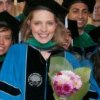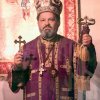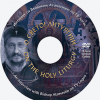Iva Dostanić has finished the Fifth Belgrade Gymnasium and with her family moved to Vienna and then to Athens where she attended the American International School being the best student. She continued her studies at Manhattanville. Her did her postgraduate studies in biochemistry and molecular biology in Cincinnati where she defended her doctoral theses.
While at Cleveland clinic she received the Award for Medicine and Humanity.
She passed away on Tuesday, December 27, 2011.
The Iva Dostanic Physician Scientist Trainee Award is given annually by the Department of Medicine for the individual whose passion for the science of medicine, intelligence, creativity, work ethic, and accomplishments exemplify the best of medical research and the physician scientist.
Ива Достанић је из Пете београдске отишла са својом породицом у Беч, а затим у Атину. Након Vienna International School, у Атини је похађала American International School и била међу најбољима у својој класи. У Атини је добила крила и одлучила да школовање настави у САД. Била је примљена на више колеџа, али се одлучила да оде у Менхетенвил, који су завршиле девојке из породице Кенеди. Ту је дипломирала на катедри за биологију и хемију као најбољи студент. Последипломске из биохемије и молекуларне биологије наставила је у Синсинатију, где је затим и докторирала код проф. др Лингрела, члана Америчке академије наука и кандидата за Нобелову награду. Након доктората добила је позиве да ради као професор на Јејлу и Харварду, али је она хтела да упише медицину. Одабрала је Кливленд клинику која је за докторе научнике имала посебан програм, на који се годишње прима само 32 од хиљада кандидата.
Током студија на Кливленд клиници имали су час из кардиологије где је професор поменуо један од њених радова из доктората о високом притиску. Ива га је исправила у нечему и кад је он питао одакле то она зна, њенииз класе су рекли да је она та Достаниц – аутор рада који он помиње, а он је рекао да први пут држи предавање некоме ко зна више од њега. Као најбоља у класи, добила је награду за медицину и хуманост (Award for Medicine and Humanity).
По завршетку студија Иву су тражили водећи медицински центри. Одлучила се за Јејл, где је, као прва од 2.000 кандидата, уписала специјализацију из интерне медицине. Дан пре почетка специјализације дијагностикован јој је рак јајника,а она је наставила са едукацијом и истраживањем и под хемотерапијом која је уследила. Осим постигнутим резултатима,своје сараднике је запањила храброшћу, радном етиком и ентузијазмом. Друштво у коме је живела, радила и коме је енормно допринела уме да цени њена дела: у част Иве Достанић на Јејлу је уведена годишња награда за најбољег доктора научника, која носи њено име: IVA DOSTANIC AWARD FOR BEST PHYSICIAN SCIENTIST. Ова награда, чији је Ива била први добитник, додељиваће се сваког јуна све док постоји Јејл. Поред тога, успостављен је фонд којиноси њено име и који новчано помаже научна истраживања.
И сам као лекар знам да на судбину наших живота често не можемо да утичемо када се умеша тешка и неизлечива болест. Међутим, да ли смо могли да утичемо да смањимо број људи који одлази из наше земље? Да ли можемо да спречимо да се то не деси онима који су управо матурирали? Можемо ли и ми да се боримо за оне који вреде и шта им можемо понудити? Можда би поштовање и захвалност некима били довољни...
Политика, 30. 7. 2014.





